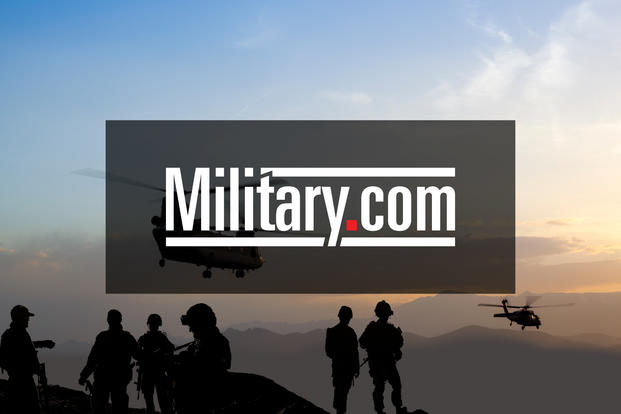Annie
Diamond Member
- Nov 22, 2003
- 50,848
- 4,827
- 1,790
Eclipsed by Hamas:
http://news.yahoo.com/s/ap/20060211/ap_on_re_mi_ea/hezbollah_s_weapons
http://news.yahoo.com/s/ap/20060211/ap_on_re_mi_ea/hezbollah_s_weapons
Hezbollah Faces Price of Joining Politics
By ZEINA KARAM, Associated Press Writer Sat Feb 11, 1:59 PM ET
BEIRUT, Lebanon - As Hezbollah meshes into Lebanese political life, a serious effort is afoot to push the militant organization into laying down its arms and distancing itself from the policies of Iran and Syria.
It comes at a critical juncture: Iran is under pressure over its nuclear program, Lebanon is out from under the Syrian military thumb and another Islamic movement, Hamas, is set to take a Palestinian governing role.
Hezbollah, branded a terrorist organization by the United States, has been reinventing itself in Lebanon in recent years to ensure its survival. From a shadowy group linked to militants who carried out some of the worst violence of the 1980s, it is evolving into a mainstream political party with 11 legislators in the 128-seat Lebanese Parliament and five ministers in the 24-member Cabinet.
Now, with its Syrian backers in Lebanon having lost power since Syrian troops quit Lebanon last year, Hezbollah may be facing its greatest challenge.
For the first time, open debate has unfolded in Lebanon about Hezbollah's weapons as well as its allegiance to the country. Many among Lebanon's new anti-Syrian majority accuse it of dividing its loyalties among Beirut, Damascus and Tehran.
Critics worry that Hezbollah has become the Lebanese arm of an anti-U.S. regional front for Iran and Syria. Anti-Syrian politician Walid Jumblatt and others have said Lebanon should not be "a barricade for Iran's nuclear facilities."
Referring to Hezbollah's leader, Sheik Hassan Nasrallah, Jumblatt said Friday: "No matter how strong he is and he is strong as a simple Lebanese citizen I say no to Syrian and Iranian tutelage."
Meanwhile, Hezbollah faces a 2004
U.N. Security Council resolution demanding it disarm.
Lebanon's many militias disarmed in 1991 after a 15-year civil war ended, but Hezbollah kept its weapons, saying it needed them to fight
Israel's occupation of southern Lebanon.
The Lebanese army of about 70,000 troops with a modest arsenal could not move against Hezbollah for fear it would split along sectarian lines as happened in the civil war.
The Israelis left in 2000, but Hezbollah fights on over a disputed piece of land called Chebaa Farms. It maintains that Israel, having twice invaded Lebanon, could do so again, and has been cool to the idea of merging into the Lebanese army, lest its options be curtailed in any future conflict with Israel.
It has mortars, rocket-propelled grenades, rifles and more than 10,000 Katyusha rockets. It is believed able to field thousands of armed supporters, drawn from the Shiite Muslim community who are Lebanon's largest single sect.
Nasrallah says he is open to discussions on the arms, and he disputes the idea that his group does the bidding of Damascus or Tehran.
To burnish his credentials as a Lebanese political figure, Nasrallah joined hands last week with a major anti-Syrian Christian leader, Michel Aoun. The two men called for a national defense strategy that would deal, among other matters, with the weapons issue.
"How do we protect Lebanon and what is the best strategic way to protect the country when we agree on that, we can discuss the weapons," Nasrallah said.
Hezbollah's evolving stance on weapons and loyalties indicate it is searching for new rules after the Syrian withdrawal, said Ibrahim Bayram, an analyst with Lebanon's leading An-Nahar daily.
"Whether there is a Syrian agenda or not, whether there is an Iranian agenda or not, Hezbollah feels it is being sidelined and oppressed by the (anti-Syrian) majority," he said.
The issue of allegiance came to a head Dec. 12 when the Cabinet put to a vote the request for international court proceedings after a U.N. probe implicated Syria in the assassination a year ago of former Lebanese leader Rafik Hariri.
Hezbollah's ministers walked out, setting off a seven-week crisis. It ended when the government reiterated its recognition of Hezbollah as a "resistance" group. That sidesteps the term "militia," exempting Hezbollah at least for now from a U.N. resolution that calls for the disarmament of all militias.
In the 1980s, militants linked to Hezbollah were accused of holding Western hostages and killing hundreds in bomb attacks on U.S. and French military targets. The 2000 Israeli withdrawal, under Hezbollah's military pressure, sharply boosted the group's status, but its position became more tentative when its street demonstrations against the Syrian withdrawal were eclipsed by larger anti-Syrian rallies.
Now it is urgently trying to sharpen its Lebanese colors and distinguish itself from Syria and Iran, analyst Bayram said.
"For them, it's a fight for survival and they are engaged in self-defense," he said.



